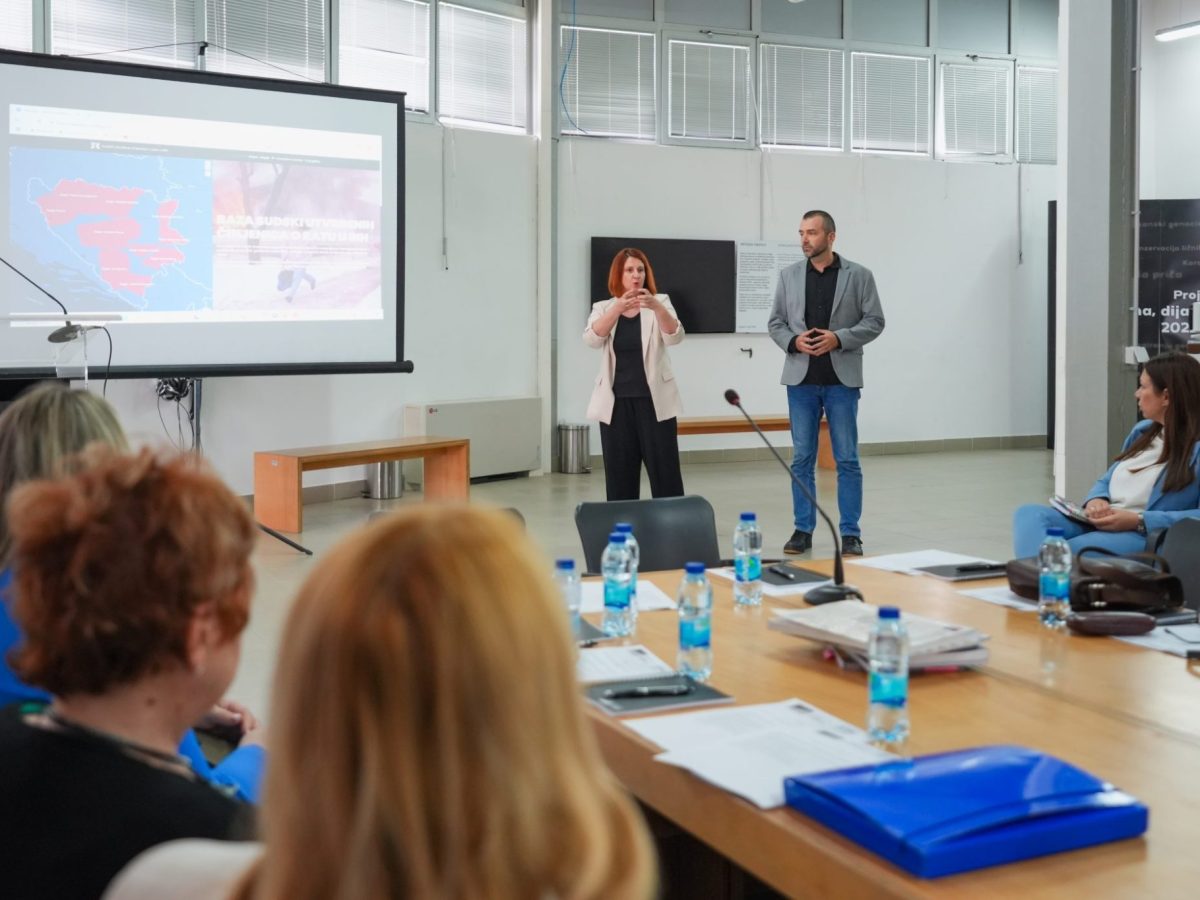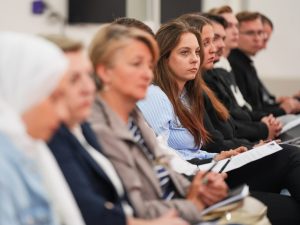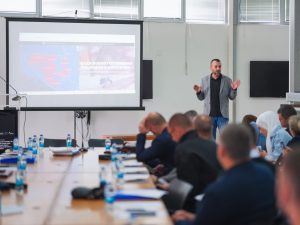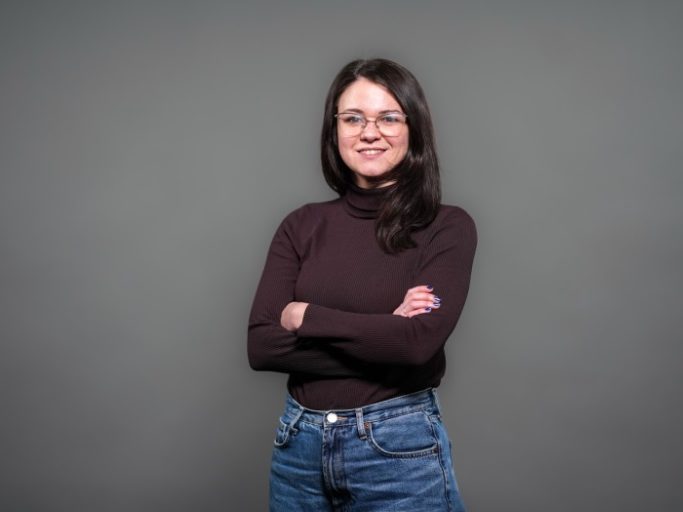Journalism has attracted her since high school, as has literature. “At that time, I did not think that I would work in an organisation like BIRN. However, I thought about journalism as an important profession, which I still think today – about journalists as heroes and as people who help others,” she says.
“I started working at university as a student on the radio and 20 years flew by like that. I also worked in many media where I learned about different types of journalism from very good journalists – but I have gained a unique dimension of work and skills through the years at BIRN,” Dzana adds.
Over the past 12 years, BIRN has evolved and grown, she says.
“The organisation grew in every sense, as did I, along with it. For example, BIRN BiH dealt with war crimes that year and slowly started to monitor corruption. Today, there is almost no segment we don’t report on besides this, from terrorism and human rights to discrimination, foreign influences and people on the move. Investigative stories now are at an enviable level and BIRN as an organisation is recognisable not only in the region but also beyond,” she explains.
Before joining BIRN, her great love was video journalism, and she worked on TV because it was a challenge and an opportunity to express creativity. She is especially proud of two of her documentaries, Pod zemljom (Underground) and Četiri zida (Four Walls), which she authored.
“Underground is a story about children who were born literally four meters underground, where a hospital was built during the [Bosnian] war. Around 500 babies were born and hundreds of lives were saved there. I was fascinated by the story, the heroism, and the strength of my interlocutors,” she says.
“The second film is about the relationship between our society and politicians in the region towards the LGBT community in which I made an effort to make viewers aware of the discrimination and violence that this community unfortunately lives with.
“I like to think about how to tell a story, show emotion and convey the actual situation to the viewer. Most of all, I like teamwork on documentary films with fellow editors, cameramen and others from whom I have learned much. I’m always grateful to people who share their life stories with us, and, as in other formats, when we work, I try to do it in the best and most professional way,” Dzana says.
Dzana has won several awards. The European Union Investigative Journalism Awards and the Special Award of the European Press Prize have special meaning for her. They are also important at a time of attacks on independent media and denials of freedoms.
“For years, I was a journalist reporting from war crimes trials, interviewing victims from the past war, recording their fates and the searches for family members of the missing,” she says.
“I knew that these topics were not among the most read and that many people on social networks hid me because they said I always write difficult and sad things, but we worked on them for the sake of all those waiting for justice. So, when our newsroom received the European Press Prize for reporting on war crimes, it was an important recognition for me and all BIRN journalists,” she recalls.
“Awards for investigative journalism are really like wind at the back and a big plus. At a time of attacks on independent media and denials of freedoms, they are extremely important. And, let’s be realistic, such stories are often the ones that reveal things that are the work of the police or prosecutors,” she says.
Besides all of this, she trains young journalists and students at workshops on reporting on victims, missing persons, court reporting and investigative journalism.
“I do my best to pass on my knowledge to younger colleagues. Apart from the truth about our work, I try to show them that there is no better profession and greater satisfaction than when we help someone with our stories, discover something, or help them understand.
“I also try to present research as interesting and the work as fun because sometimes it is like that. It’s hard but it’s worth it, and I want to convey that feeling to them.
“I always leave the young with a new perspective on the topic we discussed because then they see things differently. They often remind me that we were all once young and inexperienced, and this is what I tell them – whoever works makes mistakes, and you won’t learn if you don’t try. But with reading, work, and education, progress will come.
“I am happy when I get a message from one of them whom I have motivated to do a story, when they get a job, or when they tell me that my mentoring meant something to them,” Dzana says.
She enjoys working on video and documentary stories the most. But it’s also the most difficult part of her work:
“As an editor, I generally miss the field, being more on set and talking to people. That’s what I love the most, though it’s also the most difficult thing for me because the stories about war crimes that we recorded are simply painful, human…
“Working with parents who have lost their children, with those who are still searching, and with victims of sexual violence is the most difficult, in that these stories follow you; you carry them home, you do not forget those fates, their words. But at the same time they motivate you to help them in the way that we journalists can, in the fight for truth and justice.
“When I’m driving around Bosnia and Herzegovina and I see signs with the names of settlements and villages, I start telling my passengers what happened there. Whether we like it or not, those stories have become a part of us,” she says.
The one thing she lacks is more spare time and time to do everything she wants to do – but journalism helps her with that, as well.
“Sometimes, we work at night and from home because that’s the nature of our work. I am a mother, a wife, a daughter, a sister, an aunt and a granddaughter… While I visit everyone, a little time is left for friends, the occasional movie, and a book.
“I like to travel; if I could, I would visit new places all the time. Luckily, journalism made it possible for me as well,” she concludes.














